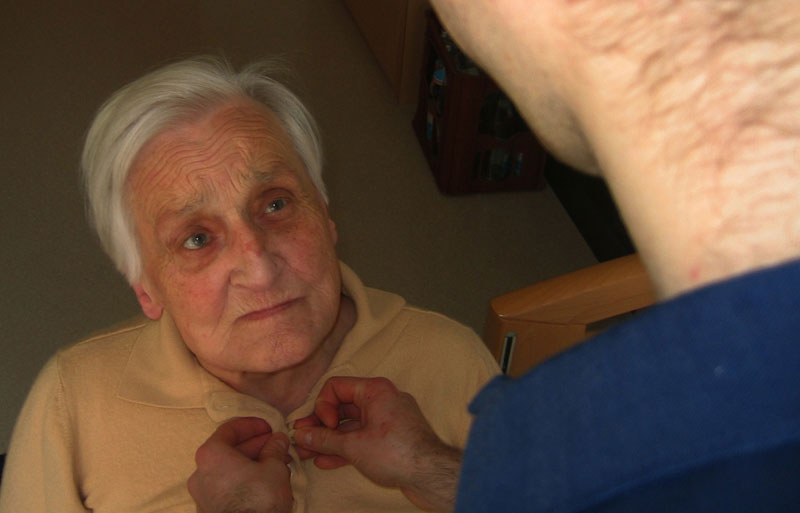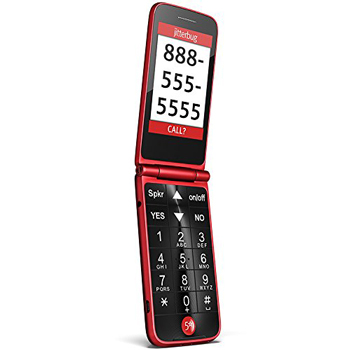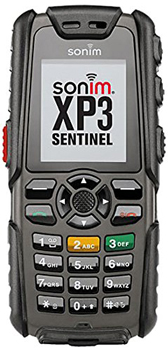Everyone needs a connection. Seniors who are isolated from their families or suffer from specific health needs are not an exception. Whereas the smartphone industry is quite extensive, it doesn’t think about the specific needs of the seniors. Seniors with health conditions such as dementia require an easy cell phone for dementia.
For one to be a senior citizen, chronological age is not a determining factor. It is dependent on some preferences, faculties, and lifestyles. Individuals searching for phones in the senior market probably have declining eyesight, diminished hearing, and are not specifically interested in the latest tech features. That said, check out the following guide on the best cell phones for seniors.
What Is The Easiest Cell Phone For Seniors With Dementia ?
Most people find it daunting when purchasing the best careline phone for dementia. Well, this is probably because most parents or senior citizens don’t require smartphones with video chatting, surfing, and emailing abilities. If that’s the case, worry not as there are specific phones that exactly suit what your senior parents could be in need of.
Based on this, flip phones are probably the easiest cell phone for seniors due to many reasons. Apart from their big buttons, flip phones have the advantages of easy display, portability, long battery life, and ease of use. Smartphones are a second option for advanced seniors who need to video chat with their loved ones, want internet access to social profiles, and email access.

Top 3 Best Cell Phone For Seniors With Dementia
As mentioned, seniors may prefer flip phones over smartphones due to many reasons. For one, they don’t want a lot of complications, yet all they need is to make calls and texts to their children and grandchildren. That said, below are the best flip phones for seniors.
1. The Doro PhoneEasy 626
The Doro PhoneEasy 626 is one of the best big button cell phone for seniors. It is a no-frills flip phone perfect for Consumer Cellular clients who need a phone for calling and texting. Doro PhoneEasy 626 is among the feature phones that fell out of fashion when people turned for smartphones, but remain a solid choice for those who need a simple to use and no-frills device.

Features Of Doro PhoneEasy 626
- Design: The Doro PhoneEasy 626 comes either in black, silver or burgundy colors. The device measures 4.00 x 2.05 x 0.75 inches and weighs approximately 3.67 lbs. The size makes it easy to use, even with one hand. The front part comprises of smooth red plastic with a rectangular black and white screen. The screen displays both time and incoming calls. The side is made from white plastic with volume buttons, headphone ports, and micro USB ports. The backside is matte red with a grippy rubberized finish that prevents slippage. The battery is removable, with the removable back panel that gives access to the battery, SIM card slot, and microSD slot.
- Network, Battery, and Audio: As mentioned, Doro PhoneEasy 626 is sourced through Consumer Cellular network. If you don’t know, consumer cellular is one of the various mobile virtual network operators that use T-Mobile and AT&T’s networks. This device supports 3G connectivity, providing an assurance that users will make calls from various locations without issues. The call quality is top-notch with clear transmissions, natural voices, and loud earpiece volume. There is also an active noise cancellation. Doro PhoneEasy 626 also supports 3.5mm wired audio jack, standard Bluetooth connectivity and compatible with M3/T4 hearing aids. This device comes with average battery life, clocking approximately 5 hours of continuous voice calling. Other features such as camera and navigation settings are average.
- Easy to use
- Inexpensive
- Quality call audio and volume
- Emergency alert button
- Lacks internet and email access
2. Jitterbug Flip
GreatCall’s Jitterbug flip phone is another great phone for seniors who need a simple device. The device comes with several handy features that make it a good choice for seniors with specific health needs, including dementia. At an affordable price tag, you get a bright display, simple menu, backlit keypad, and dedicated urgent response button for emergency help.

Features Of Jitterbug
- Design, Physical Features, and Display: The Jitterbug comes in a shiny red plastic clamshell measuring 2.2 x 0.7 x 4.3 inches and weighs less than 5lbs. Though quite larger and heavier compared to the Doro PhoneEasy 626, it has a relatively big display and keypad buttons, probably worth the bigger size. The front screen displays the real-time, date, and if the 5Star is enabled. It also shows any incoming calls and texts. The only available display is monochrome text, probably to save on battery use. The right side of the phone has the flashlight and volume rocker buttons with micro USB charging port and 3.5 audio jack on the left side. The backside is also made from plastic, but quite glossy than the front, probably to increase its grip. Removing the back cover opens up to the removable battery and SIM card slot. This device doesn’t have a micro USB slot. By flipping the phone, you get to access its 3.2-inch screen that is bright with good display angles offering excellent visibility.
- Network and Service Plans: The GreatCall Jitterbug is one of the best Verizon cell phones for seniors with specific plans for seniors and their respective families. Due to this, prices are quite high for prepaid phones. There are several sets of tiers for texts, minutes, and health-care services available. For instance, with $30, subscribers get 600 minutes and basic emergency services.
- Battery and Call Quality: Initially, the Jitterbug used Verizon’s old 3G CDMA system. However, it is set to support soon the HD quality phone calls over LTE bands that will allow for good nationwide network coverage following CMDA shutdown. By pressing the 5Star button, the device uses GPS and WI-FI to provide the exact location of the owner to emergency response agents. This device’s call quality is excellent, clear voices free from garbling but has slight robotic tones. The earpiece volume and speaker are loud enough and provide excellent noise cancellation. It is also compatible with hearing aids and pairs to headsets through Bluetooth 4.0. Battery life, on the other hand, is this phone’s strong point. It supports a maximum of 10 hours of talk time and offers several days standby. The battery can also be removed, thus provides an option of swapping it with another one if you have a second recharged battery.
- Simple menu display
- Big and bright display
- Backlit keypad
- Long battery life
- Lacks internet and email access
- Lacks microSD slot
3. The Sonim XP3
The Sonim XP3 is another terrific flip phone option for seniors who don’t like smartphones. This rugged, traditional phone supports 4G calling through AT&T and Sprint networks. It also comes at an affordable price range, making it a good choice for anyone looking for a simple, reliable, and loud flip phone.

Features Of The Sonim XP3
- Design and Durability: Sonim is well-known for making rugged phones since its inception. However, the initial models had a brick-like appearance and didn’t appeal to everyday users. However, the Sonim XP3 is quite different. It has a handsome appearance and fits comfortably into the pocket. It is made from matte grey plastic that brings its casual industrial look. The device weighs 6.88lbs and measures 2.3 x 4.4 x 1.1 inches. Sonim XP3 is tough and IP68 waterproof. The device is another big button cell phone with physical buttons that makes it fully usable, even underwater or wet. The front side features a monochrome display that shows time, date, battery life, signal, and caller ID. The inner flipped side has a 2.6-inch display screen with backlit keys that are nicely separated. Like other flip phones, it has volume buttons on the side with a programmable button, yellow in color, that can be set to launch any application quickly.
- Calling: Both the call quality and reception with Sonim XP3 are excellent. It supports both AT&T and Sprint networks with WI-FI calling on Sprint. The earpiece of the phone is loud, clear, and has noise cancellation features. You can set the phone to hang up or switch the call to speakerphone if you flip the phone mid-call. Like modern phones, you can assign specific ringtones to contacts with several call-screening options. You can as well blacklist or whitelist individual numbers regardless of whether the number is saved on the phonebook or not. You can additionally hide the whitelisted and blacklisted numbers behind a pin for an employee or parental control reasons.
- Good rugged build
- Top-notch call quality
- Three-year warranty
- Weak vibration
- Poor camera
What Is The Cheapest Cell Phone For Seniors With Dementia?
Financially challenged seniors who need cell phones for emergency purposes can choose from various inexpensive no-contract plans. Depending on the available income level, seniors can also enjoy free cell phones with monthly airtime minutes. Below are the best cheapest deals.
No Contract Cell Phones
The best way seniors can save money is by getting no-contract prepaid cell phones. Also known as pay-as-you-go cell phones, there are no fixed monthly bills, no hidden costs, and no credit checks that often accompany traditional cell phone plans. In this service, you can purchase a prepaid phone and purchase a given amount of minutes that can be used within a specified period.
Most carriers such as Verizon and AT&T offer inexpensive prepaid plans. Independent carriers such as Cricket, Virgin Mobile, TracFone, T-Mobile, and Net10 can also provide the best deals. TracFone, for instance, has plans starting as low as $10 per month and call plans as low as $7.
Probably what many people find the cheapest option for seniors is the no-contract senior suitable phones with big buttons is the Doro PhoneEasy 626 offered by Consumer Cellular. The plan costs $60 for flip phones with calling plans that start from $10 monthly.
Free Cell Phones
Seniors with extra-low financial income can consider checking the Lifeline Assistance Program. The program is a government-sponsored build-up that promotes wireless companies that provide free cell phone plans and free monthly airtime and texts. This program currently supports more than 15 million Americans and others eligible.
Several prepaid wireless companies such as Safelink and Assurance Wireless provide free phones and talk time. To qualify for this, you should demonstrate proof that you benefit from various free government cell phone programs such as Medicaid, SSI, home energy assistance, public housing assistance, and Food Stamps.
Should A Person With Dementia Have A Phone?
Dementia is an age-associated medical condition where affected parties suffer from frequent amnesia. Like other activities of daily living, using a cell phone may not be a problem for individuals suffering from early stages of dementia. However, as the disease advances, seniors encounter several problems when using cell phones.
That said, you shouldn’t assume that your senior loved one suffering from dementia will remember using the phone correctly. There are high chances that the person will not retain the knowledge of using the cell phone for long. You might as well find the person confused that usual.
Check Phone Bills
You can identify the weaknesses that a senior with dementia undergoes to perform ADLs by observing whether they can perform such activities or not. Using cell phones can be quite different. Checking home phone bills at times reveals the first sign that your senior person has problems using the phone. Other signs include long-distance calls that do not make sense, no recalling making calls and accepting calls from unknown sources.
That said, if you want your senior with dementia to use cell phones, consider blocking calls to limit the number of calls. This is important if the person is living alone. Such persons are very vulnerable to fraud. You can also block who they can possibly call. Dementia, in most cases, cloud judgment and the family member becomes prone to sudden emotional decisions.
For instance, they can order a product they just saw on TV. Televangelists with donation pitch such as “call now” and “free” often entice those with dementia. The other way is making the phone available at specific times of the day. If this doesn’t work, consider removing the phone totally.
The Bottom Line
Finding the best cell phone for seniors with dementia is a daunting task. Therefore, finding the best for individuals suffering from dementia is an additional headache. Nonetheless, the guide above provides valuable insights as to how you should go about providing your senior with dementia with the best cell phone for seniors.

